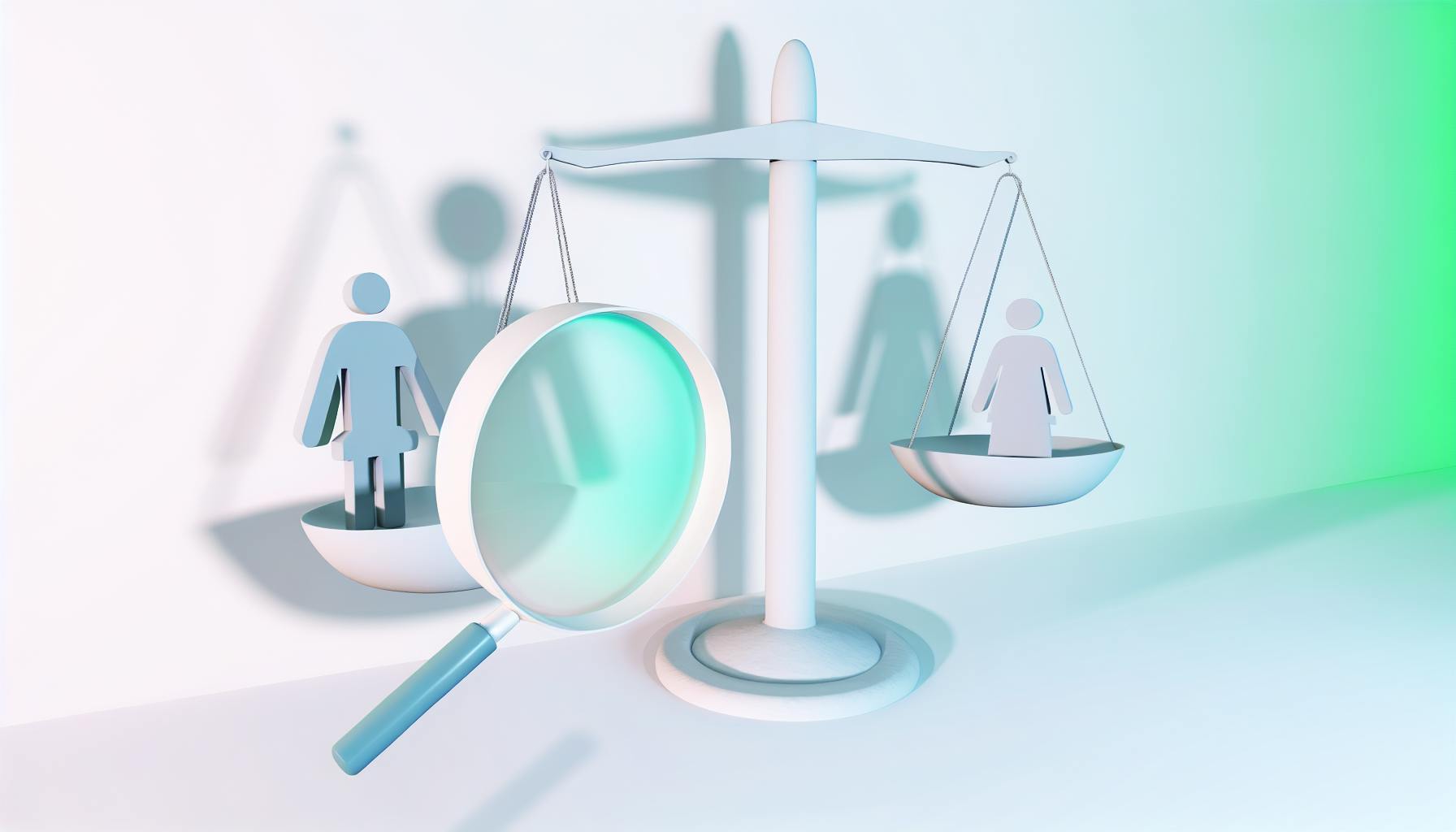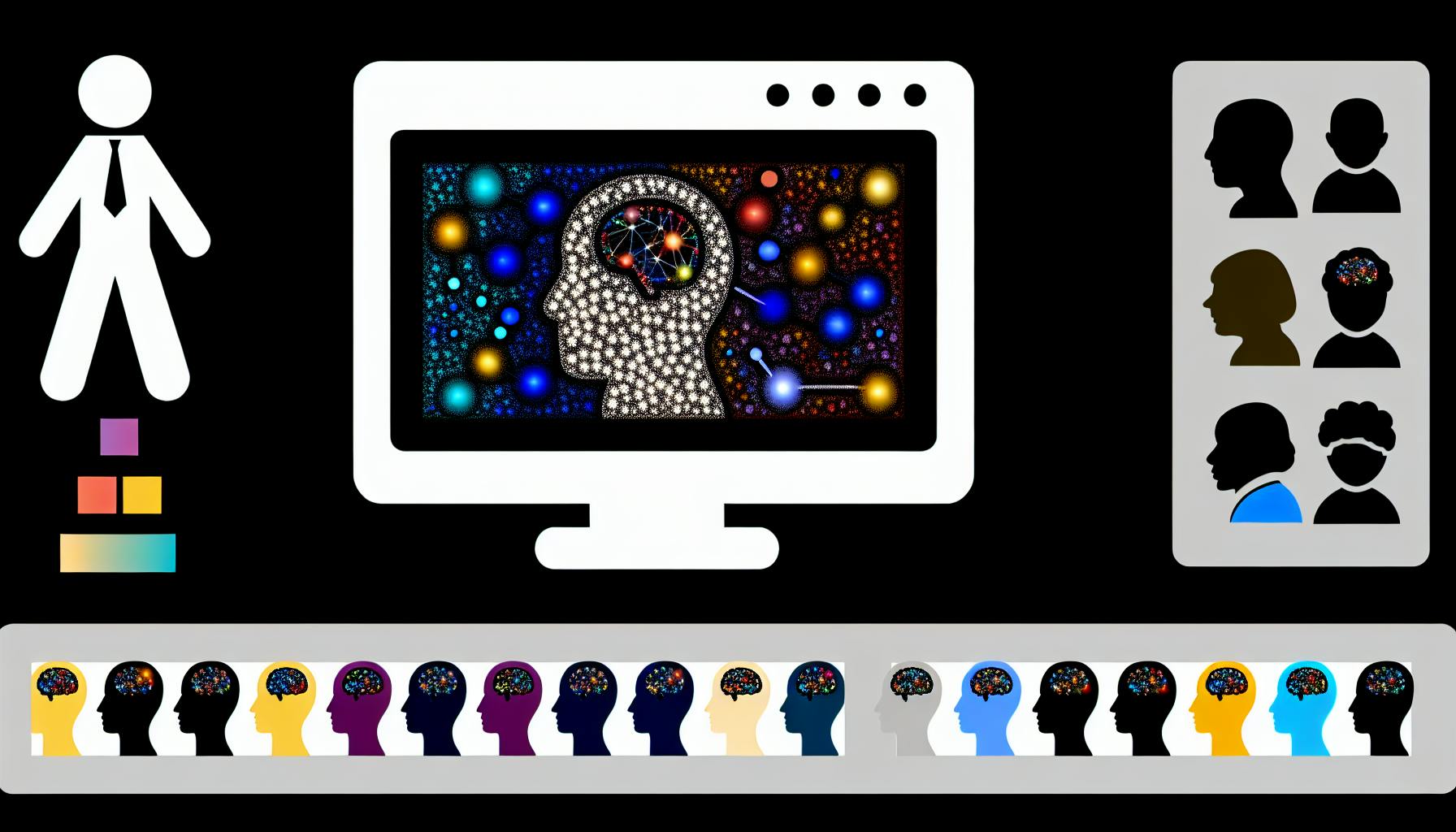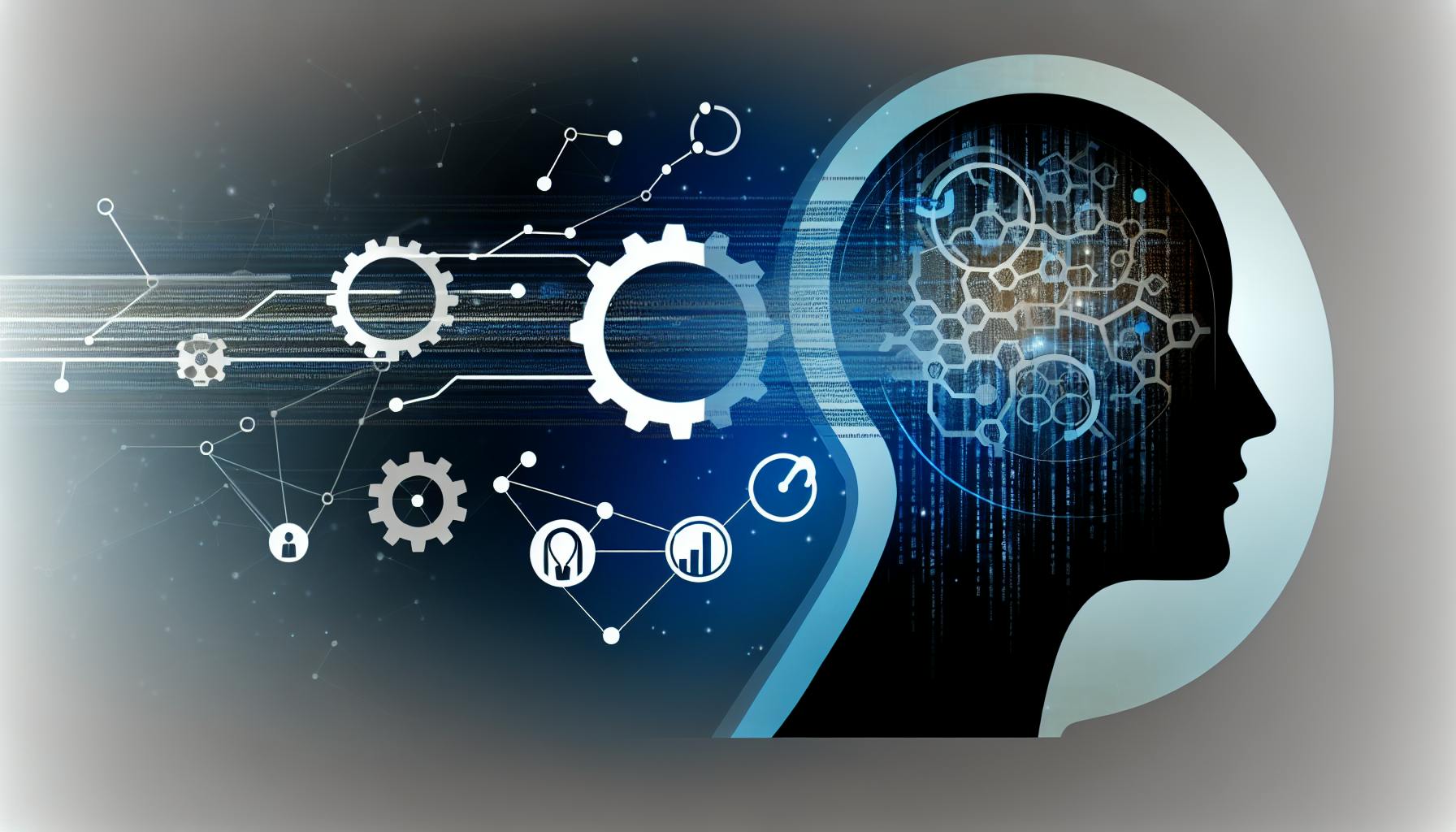With the rise of AI, more organizations are looking into AI coaching tools to improve HR efficiency.
In this post, I'll share the key criteria for evaluating AI coaching platforms to help you select the right one for your team.
You'll learn how to assess these tools across data integration, coaching methodology, privacy, customization, and more. I'll also compare top vendors and provide best practices for implementation to maximize the impact of AI coaching.
Introduction to AI Coaching Tools for HR Efficiency
As organizations look to enhance employee development and retention, AI coaching tools offer an innovative solution to drive HR efficiency. By providing personalized and scalable coaching, these platforms can empower employees while optimizing workflows.
When evaluating AI coaching options, HR leaders should consider key criteria:
Understanding the Role of AI in Coaching Business
- AI coaching leverages natural language processing and machine learning to deliver individualized guidance at scale, transcending human limitations
- By analyzing employee data and interactions, AI coaching platforms create customized development plans tailored to each user
- Coaching apps powered by AI offer 24/7 availability and real-time recommendations based on analytics for anytime learning
The Advantages of Implementing AI Coaching Apps in HR
- AI coaching integrates seamlessly into HR tech stacks through API integration with HCM systems
- Automated coaching frees up HR staff to focus on more strategic initiatives and human interactions
- Data-driven insights from AI coaching provide visibility into employee progress and patterns to enhance HR decision making
- Always-on support via chatbots and messaging fosters continuous learning outside of formal training
In summary, AI coaching shows immense potential in augmenting employee development while optimizing HR workflows through automation and data-driven recommendations. Assessing integration capabilities, analytics, and overall user experience are key in selection.
How can coaches use AI?
AI coaching tools can help coaches in several key ways:
Streamline administrative tasks
AI tools can automate routine administrative tasks like scheduling meetings, sending reminders, documenting notes, and tracking progress. This allows coaches to focus their time on higher-value responsibilities.
Provide personalized insights
AI algorithms can analyze employee data to generate personalized insights about development areas, career goals, and coaching needs. This enables coaches to offer tailored guidance to each employee.
Suggest coaching best practices
AI systems can recommend proven coaching techniques based on the employee's role, skills, experience level, and development goals. This helps coaches determine the most effective methods.
Measure coaching impact
AI tools can track employee progress over time after coaching interactions. Coaches can use this data to refine approaches and demonstrate the ROI of coaching programs.
Expand coaching capacity
By handling time-intensive tasks, AI coaching assistants allow coaches to work with more employees while maintaining quality. This increases the reach of coaching initiatives.
With the right AI capabilities, coaches can elevate their impact - spending less time on administration and more time on strategic development initiatives. Evaluating tools on criteria such as personalization, automation, and analytics is key for HR efficiency.
Is there an AI life coach?
AI coaching platforms like Rocky.ai are emerging to provide personalized development and leadership skills coaching powered by artificial intelligence. These AI chatbot coaches aim to simulate human-like conversations to help users set goals, reflect on priorities, and design action plans for growth.
Some key capabilities of AI coaching tools include:
- Conversational interface: The AI coach interacts through natural language conversations, listening and responding to users.
- Personalized sessions: Coaching sessions are tailored to each user's specific goals and needs.
- Actionable advice: The AI coach provides tips and recommendations users can apply to their life and work.
- Progress tracking: Tools like Rocky.ai let users review conversational history to measure progress over time.
While AI coaches attempt to replicate human coaching conversations, they have limitations:
- The advice is pre-programmed, not dynamically responsive like a human coach.
- There is no human emotional connection.
- The AI cannot understand subtle context or read body language cues.
So while AI coaching apps provide some benefits of self-reflection and goal-setting structure, they may lack the depth of human-to-human coaching interactions. Evaluating your specific development needs can determine if an AI coaching solution could be helpful on your journey.
Is there a free AI tool?
Google Cloud offers free usage of many AI products up to monthly limits, including Translation, Speech-to-Text, Natural Language, and Video Intelligence. There is no charge to use these products up to their specified free usage limit.
Some examples of free AI tools include:
- Google Cloud AI: As mentioned, Google Cloud offers free access to AI APIs like translation and speech recognition. The free tier includes enough usage for small projects.
- IBM Watson: IBM offers a Watson Studio free plan that includes access to AutoAI and machine learning models. The free tier is enough for learning and prototypes.
- Azure Cognitive Services: Microsoft Azure provides free access to cognitive services APIs for vision, speech, language, search, and decision. Enough for small projects.
- Amazon SageMaker: Amazon's SageMaker provides a free tier for building, training, and deploying machine learning models. Good for getting started with machine learning.
- Algorithmia: Algorithmia offers a free developer tier providing access to thousands of AI/ML algorithms with limited usage. Helpful for testing algorithms.
So in summary, major cloud providers like Google, IBM, Azure, and Amazon offer free access to AI services, which allow you to build prototypes and small projects at no cost. Products like Algorithmia also offer free access to AI building blocks. These are great options for getting started with AI without a large budget.
sbb-itb-34a8e9f
What is the best tool for AI?
When evaluating AI coaching tools for HR efficiency, there are several top options to consider:
Candide
Candide offers an AI-powered coaching platform that provides personalized recommendations and insights to improve leadership and management capabilities. Key features include:
- Customized coaching plans based on an individual's strengths, weaknesses, and goals
- Real-time feedback and suggestions during coaching sessions
- Analytics to track progress over time
WARMER.ai
WARMER.ai focuses on using AI for recruiting, providing an automated sourcing assistant to help identify and engage qualified talent. Benefits include:
- Automated candidate outreach at scale
- Reduced time-to-hire
- Insights into what messages resonate best with candidates
Paradox
Paradox has an AI assistant named Olivia that acts as a virtual career coach for employees. Olivia can provide guidance on career pathing, skills development, and advancing within an organization.
Textio
Textio analyzes job posts and external branding content to reduce unconscious bias and ensure inclusive language. This helps attract highly qualified and diverse candidates.
When evaluating these AI coaching tools, key criteria include accuracy of recommendations, ease of integration with existing HR systems, opportunities for customization, and measurable improvements in efficiency. Prioritizing solutions that seamlessly work within current workflows can maximize HR productivity gains.
Criteria for Evaluating Coaching Software Platforms
When examining AI coaching platforms, HR teams should assess certain vital factors to determine if a solution aligns to their needs.
Assessing Data Integration Capabilities
The ability to ingest and analyze existing HR data like performance records and employee profiles is crucial for providing tailored, impactful experiences. Key aspects to evaluate include:
- API and integration capabilities: Assess whether the platform can connect to existing HRIS, ATS, and other people data systems via API to pull in employee profiles, goals, performance metrics, and development plans. This enables personalized and context-aware coaching.
- Data security: Review how data is encrypted in transit and at rest. Ensure data governance protocols comply with regulations and protect sensitive employee information.
- Analytics and reporting: Check that the system can generate coaching program analytics like participation rates, content resonance, and impact on OKRs. This allows for optimization.
Analyzing Coaching Methodology and Effectiveness
AI coaching tools should have transparent methodologies explaining how they deliver feedback, make recommendations, tailor content to the individual, and measure effectiveness. When evaluating solutions, HR should:
- Examine the algorithms, models, and approaches used to provide coaching and ensure they align with company values.
- Review how coaching interactions are personalized based on employee attributes like role, aspirations, strengths, weaknesses, and engagement levels.
- Check that effectiveness is measured via surveys, qualitative feedback, and metrics showing coaching outcomes. This indicates ROI.
Ensuring Privacy and Security in Coaching Tools
Robust data governance practices that protect sensitive employee information are non-negotiable when evaluating coaching software. Essential aspects include:
- Employee data access controls and permission settings
- Encryption protocols during data transmission and storage
- Compliance with regulations like GDPR, CCPA, HIPAA based on geography
- Breach notification policies in case of a security incident
Customization and Personalization Features
Options to customize coaching interactions to align with company values, culture, and existing initiatives will maximize engagement and outcomes. Consider whether platforms enable:
- Tailored content libraries based on roles, levels, and functions
- Integration with internal learning management systems
- Coaching aligned to organizational priorities and language
- User experience personalization
Carefully evaluating these aspects will ensure your AI coaching tools meet the efficiency needs of HR departments. Choosing solutions that integrate with existing tech stacks, provide transparent and ethical AI coaching, deliver measurable outcomes, and enable custom experiences to nurture talent will provide strong returns on investment.
Selecting the Best AI Coaching Tools for Your Organization
As organizations seek to foster a culture of continuous learning and improvement, AI-powered coaching tools have emerged as an innovative solution. However, with many options now available, identifying the right platform can be challenging. Here are key considerations when comparing and selecting AI coaching software for your HR needs:
Comparing Top AI Coaching Software Platforms
When evaluating coaching platforms, focus on the following criteria:
- Customization: Look for tools that enable custom coaching paths and personalized recommendations tailored to each employee's strengths, weaknesses, and goals.
- Integration: Prioritize platforms that integrate seamlessly with your existing HR systems and workflows through APIs.
- Analytics: Choose a solution that provides rich analytics into usage, engagement levels, and coaching outcomes. This allows you to continually optimize and demonstrate ROI.
- DEI Focus: Seek out tools with built-in features that promote diversity, equity and inclusion, such as mitigating biases.
- Data Security: Verify that any platform under consideration has robust data encryption, access controls and compliance with regulations.
Leading options to consider include CoachHub, BetterUp, Otta, and Degreed based on independent analyst evaluations.
Integration Strategies for AI Coaching Applications
Smooth integration enables a streamlined user experience between your AI coaching tool and current HR systems. Useful tactics include:
- Single sign-on (SSO): Reduce friction by allowing one login for access across platforms.
- Automated user provisioning: Sync employee details and permissions to automatically configure user access.
- Contextual nudges: Surface coaching recommendations within existing workflows based on user actions.
- Unified analytics: Combine insights from your HRIS, LMS and coaching tool into a centralized dashboard.
Proper API-level integration avoids data silos and provides a seamless employee experience.
Measuring the Impact of AI on Coaching Outcomes
Crucial metrics to track when adopting AI-powered coaching tools include:
- Employee engagement: Increased participation and time spent in coaching programs signal positive traction.
- Goal progression: The percentage of goals achieved across employees indicates program success.
- Manager satisfaction: Survey managers to gauge the business impact of coaching initiatives.
- Retention effects: Analyze if retention improves for coached talent segments.
- DEI advancement: Track if coaching helps advance underrepresented groups.
Continually monitor these KPIs to optimize your initiatives, demonstrate concrete ROI, and reveal opportunities for improving coaching outcomes through AI.
With careful selection criteria, integration tactics, and measurement practices in place, your organization can realize the transformational potential of AI-enabled coaching. The key is choosing human-centric tools tailored to your culture and objectives.
Best Practices for Implementing AI Coaching Tools
Properly rolling out an AI coaching program requires advance planning around change management, governance, and integrating with existing systems.
Developing a Change Management Strategy for AI Adoption
Implementing AI coaching tools can be a major shift for employees who are used to more traditional coaching models. To ease the transition, HR should:
- Clearly communicate the intent and value of AI coaching to employees. Explain how it benefits them by providing personalized guidance while complementing human managers.
- Outline any changes to existing coaching programs and workflows.
- Offer training sessions on using the AI coaching tools. Highlight key features and showcase sample interactions.
- Solicit employee feedback during the rollout to address any concerns and make iterative improvements.
- Emphasize that the AI aims to enhance, not replace, human connections. Position it as a supplementary source of support.
Establishing a Governance Model for AI Coaching
A cross-functional team including HR leaders, IT specialists, analytics professionals, and business unit heads should:
- Oversee the initial deployment of the AI coaching app and any major feature updates.
- Define protocols for collecting coaching data while preserving privacy.
- Monitor usage metrics and user satisfaction surveys to guide ongoing iterations.
- Assess if coaching interactions comply with company values and policies.
- Evaluate the impact on retention, performance, and other priority HR metrics.
This governance model ensures responsible oversight of the AI system.
Ensuring Seamless Integration with HR Systems
Connecting the AI coaching software with core platforms like an HRIS, LMS, and performance management software enables:
- A centralized view of employee data to better personalize coaching.
- Automated logging of coaching sessions within employee profiles.
- Tracking of skill development and training needs identified in coaching.
- Benchmarking of team-level coaching usage metrics.
Conclusion: Maximizing HR Efficiency with AI Coaching Tools
Evaluating AI coaching tools requires weighing factors like data connectivity, transparency, security, customization options, and implementation planning. Aligning to a company's specific needs and culture is vital.
Summarizing the Evaluation of AI Coaching Tools
When evaluating AI coaching tools, HR leaders should consider key criteria:
- Data integration: Ensure the tool connects securely to existing HR data sources and systems. This enables personalized and context-aware coaching.
- Algorithm transparency: Understand how the AI model works to provide trustworthy recommendations.
- Customization: Look for customizable coaching flows tailored to your employees and culture. Avoid one-size-fits-all.
- Implementation planning: Have a clear change management plan to drive employee adoption.
- Security: Confirm robust data privacy protections are in place.
Choosing the right AI coaching tool for your organization's needs and culture is crucial for impactful results.
Future Outlook on AI in HR and Coaching
Looking ahead, we can expect AI coaching tools to become more:
- Responsive - Leveraging real-time data and feedback to refine recommendations continuously.
- Integrated - Embedding coaching directly into employees' daily workflows for frictionless support.
- Personalized - Customizing coaching to individual strengths, growth areas, and preferences using advanced AI.
- Accessible - Making AI coaching scalable across the organization through natural language interfaces.
As AI matures, it will likely transform how HR leaders approach employee development - shifting the focus to proactive, personalized, and ongoing coaching enabled by AI.


